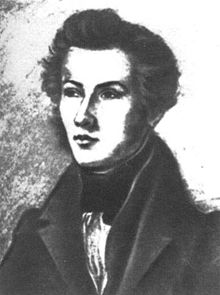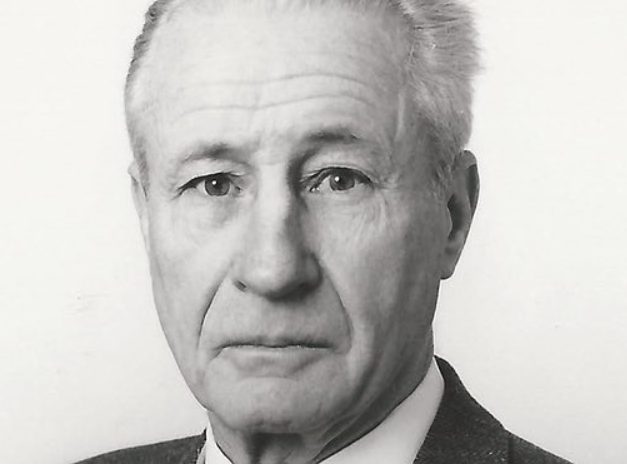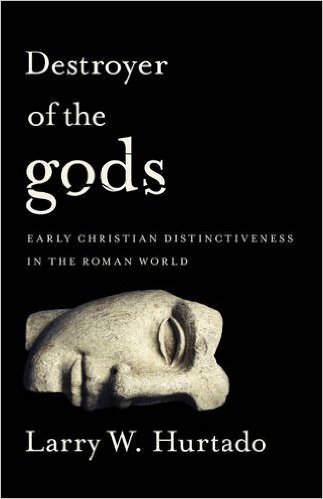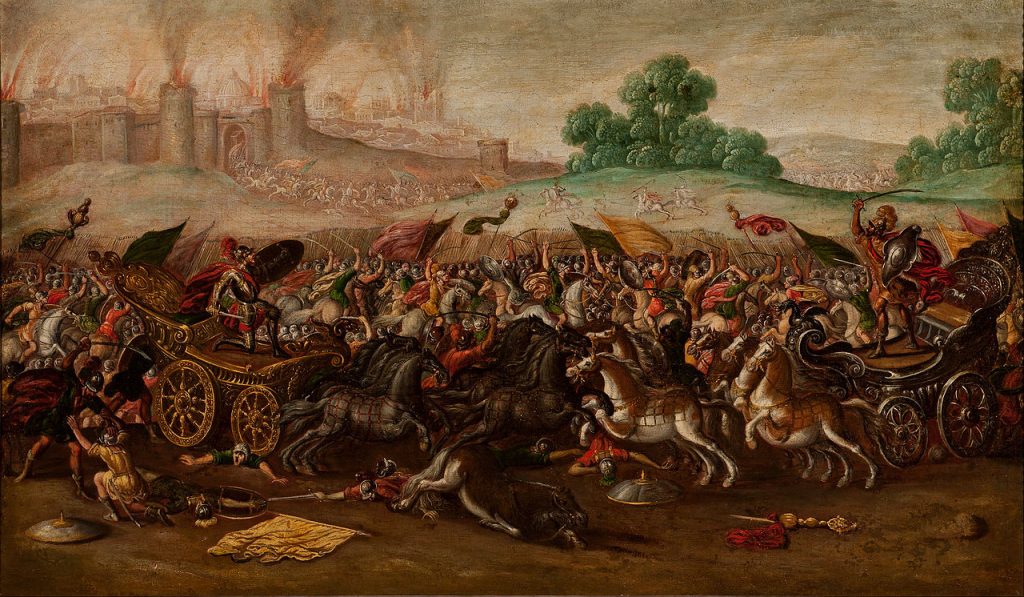One of the most common refrains in the scholarly output of scholars dedicated to the study of the historical Jesus and Christian origins is that “there is no reason to doubt” that Jesus or some other gospel figure said or did such and such. That is supposed to shut down critical inquiry, it seems. If there is “no reason to doubt” a gospel passage then it is implied that any doubt must be a product of a hostile attitude or at least an unfair scepticism. When a reputable scholar declares “no reason to doubt” what we read in the Gospels a less credentialed reader may feel that the matter is settled. “No reason to doubt X” becomes “we should accept X as historically true”.
Lest you have any doubts about the above take a look at a few examples I was able to find within minutes by grabbing a few titles almost at random:
[T]he prophet of Nazareth [Jesus] himself belonged to the house of David. There seems no reason to doubt the particulars about this which are given by the first two evangelists and Paul.
— James Dunn and Scot McKnight, The Historical Jesus in Recent Research, p. 9
There is no good reason to doubt that Jesus came under such criticism already during his period of success and popularity in Galilee. The Gospel pictures offered in Mark 2 and 7 are at this point wholly plausible and should not be lightly discarded.
— James Dunn and Scot McKnight, The Historical Jesus in Recent Research, p. 484
There is no reason to doubt that it was . . . the later slow acceptance of Mark as a fixed and authoritative text which led to the death of oral traditions about Jesus’.
— James Dunn, Jesus Remembered: Christianity in the Making, p. 202
That is to say, there is no reason to doubt that Jesus was actually baptized by John; but the account of the heaven(s) being opened, the Spirit descending as a dove, and the heavenly voice, are all evidence of mythical elaboration.
— James Dunn, Jesus Remembered: Christianity in the Making, p. 374
We have also already observed that the traditions of both the Baptist’s and Jesus’ preaching seem to have been much influenced by reflection on Isaiah’s prophecies, and there is no reason to doubt that both preachers were themselves influenced by their own knowledge of Isaiah.
— James Dunn, Jesus Remembered: Christianity in the Making, p. 494
Three features stand out in this catalogue, shared by Mark and Q, as also by the fuller material in Luke: (1) the term ‘sinner …’ is remembered as regularly used in criticism against Jesus, (2) the term ‘sinner’ is regularly associated with ‘toll-collector’, and (3) the criticism is most often levelled against Jesus for dining with such people. There is no reason to doubt that all three features are well rooted in the earliest memories of Jesus’ mission, as is generally agreed.
— James Dunn, Jesus Remembered: Christianity in the Making, p. 528
But there is no good reason to doubt the tradition that Pilate took the opportunity afforded him to follow a quasi-judicial procedure. . .
— James Dunn, Jesus Remembered: Christianity in the Making, p. 629
[T]here is no good reason to doubt the basic facts of Jesus’ arrest by Jewish Temple police and subsequent hearing before a council convened by the high priest Caiaphas for the purpose.
— James Dunn, Jesus Remembered: Christianity in the Making, p. 784
Despite uncertainties about the extent of tradition which Paul received, there is no reason to doubt that this information was communicated to Paul as part of his introductory catechesis.
— James Dunn, Jesus Remembered: Christianity in the Making, p. 855
Where there is no such reason to doubt, however, Williamson accepts Josephus in whole and part — events, motives, and moral assessments.
— Steve Mason, speaking of G.A. Williamson, “The Writings of Josephus: Their Significance for New Testament Study” in Handbook for the Study of the Historical Jesus, p. 1655
Also, on the basis of what John writes, there is no reason to doubt that he understands Joseph to be Jesus’ natural, biological father.
— D. Moody Smith, “Jesus Tradition in the Gospel of John” in Handbook for the Study of the Historical Jesus, p. 2011
Sanders is at pains to stress that there is not, in principle, any reason to doubt that Jesus could also think that already during his ministry the Kingdom was manifest: Jesus is not a systematic thinker with a dualistic apocalyptic theology.
— Crispin Fletcher-Louis speaking of E.P. Sanders, “Jesus and Apocalypticism” in Handbook for the Study of the Historical Jesus, p. 2891
Certainly, as the place of Peter, his brother Andrew, and of Philip, whose home was Bethsaida, according to John 1:44 and 12:21, . . . . . 83
83 There is no reason to doubt this information; on the contrary, only the names of these three disciples of Jesus have a Greek association: “Philip” (cf. also John 12:20-22) and “Andrew” are Greek names; the name of the brother of Andrew, “Simon,” is also often found among Greeks.
Heinz-Wolfgang Kuhn in Handbook for the Study of the Historical Jesus, p. 2995
Although the evangelists present this story in a stylized form which is adapted to their own situation, I see no reason to doubt that they are basically relating an event from the life of the historical Jesus.
— Heinz Giesen, “Poverty and Wealth in Jesus and the Jesus Tradition” in Handbook for the Study of the Historical Jesus, p. 3270
There is no reason to doubt that Jesus grew up in and around the carpenter’s shop of his father at Nazareth.
— James M. Robinson, The Gospel of Jesus, p. 96
There is in any case no reason to doubt the depiction of John as an eschatological preacher.
— E.P. Sanders, Jesus and Judaism, p. 92
In Josephus’ version the Baptist preached ‘righteousness’ and ‘piety’. . . . Josephus wrote in Greek, and these two words were used very widely by Greek-speaking Jews to summarize their religion. There is no reason to doubt that John stressed both.
— E.P. Sanders, The Historical Figure of Jesus, p. 92
Although this school debate does not appear to have been preserved in its original form, there is no reason to doubt that it represents an actual debate, because if it had been invented (i.e. mis-remembered) at a later date we would expect the Hillelite position to conform to the accepted view here.
— David Intone-Brewer, “Rabbinic Writings in New Testament Research” in Handbook for the Study of the Historical Jesus p. 1696
There is no good reason to doubt that this Simon really was a Pharisee.
— N.T. Wright, The New Testament and the People of God, p. 192
It has often been pointed out that the difference in pronunciation between Chrestus and Christus would be minimal in this period, and there is no good reason to doubt that what we have here is a garbled report of disturbances within the large Jewish community in Rome, brought about by the presence within that community of some who claimed that Jesus of Nazareth was the Messiah.
— N.T. Wright, The New Testament and the People of God, p. 355
The so-called ‘triumphal entry’ was thus clearly messianic. This meaning is somewhat laboured by the evangelists, particularly Matthew, but is not for that reason to be denied to the original incident. All that we know of Jewish crowds at Passover-time in this period makes their reaction, in all the accounts, thoroughly comprehensible: they praise their god for the arrival, at last, of the true king. What precisely they meant by this is difficult to assess; that they thought it and said it, there is no good reason to doubt.
— N.T. Wright, The New Testament and the People of God, p. 491
Virtually all scholars agree that seven of the Pauline letters are authentic . . . These seven cohere well together and appear stylistically, theologically, and in most every other way to be by the same person. They all claim to be written by Paul. There is scarce reason to doubt that they actually were written by Paul.
— Bart Ehrman, Forged, p. 106
These passages, taken together, clearly stand behind the warnings of Mark 13. Granted our whole argument thus far, there is no reason to doubt that they were used in this way by Jesus himself.
— N.T. Wright, Jesus and the Victory of God, p. 512
There seems to be no reason to doubt that Jesus spent the last week of his life in Jerusalem looking ahead to the celebration of the Passover feast.
— Bart Ehrman, https://ehrmanblog.org/the-memory-of-jesus-triumphal-entry/
Polycarp was not eager to be martyred for his faith. When the authorities decide to arrest him, he goes into hiding, at the encouragement of his parishioners. On the other hand, he refuses to be intimidated and makes no serious attempt to resist the forces that want him dead, principally the mobs in town who evidently see Christians as a nuisance and social disease, and who want to be rid of them and, particularly, their cherished leader. Rather than stay on the run, Polycarp allows himself to be captured in a farmhouse in the countryside. And when taken into the arena and threatened with death, rather than defend himself, he stoutly refuses to do what is required: deny Christ and make an offering for the emperor. He is threatened with torture and wild beasts, but nothing fazes him. The governor orders his death by burning at the stake, and the sentence is immediately carried out.
As I have indicated, the account appears to be written by an eyewitness, and there is no reason to doubt that in its essentials it is accurate.
— Bart Ehrman, Lost Christianities, p. 139
There is no reason to doubt the entire passage, just the last few words.
— Bart Ehrman, Did Jesus Exist, p. 123
We see that, while there are vague commonalities between the Jesus story and ancient stories of gods surviving death, hero myths, and legends surrounding other historical figures, none of these commonalities gives us reason to doubt that the Jesus story is substantially rooted in history.
— Paul R. Eddy and Gregory Boyd, Lord or Legend? Wrestling with the Jesus Dilemma, p. 62
One might be forgiven for suspecting that “no reason to doubt” can too easily become a cop out for failure to present an evidence based argument. Maybe it can serve as a cover for assumptions that have been taken for granted and never seriously examined, or for a lazy and naive reading of primary sources.
But let’s not be overly harsh. If I read that Jesus walked on water and rose from the dead I think I am entitled to have “reasons to doubt” those stories. But if I read that Jesus taught people to be kind to others or expressed anger at the hypocrisy of authorities I confess I see no reason to doubt such accounts. They are plausible enough narratives of the sorts of sentiments many people express.
If, however, I am wanting to dig into the origins of the gospels and Christian teachings then the fact that I see “no reason to doubt” certain episodes becomes quite irrelevant.
Compare: If I greet a friend and ask how he is I will probably have no reason to doubt him when he says “Fine, just a little tired today.” But if I were his doctor I would want to know why he is tired and his answer may lead me to do undertake tests. I would have no reason to doubt that otherwise he feels quite “fine” but that will not be my primary concern and given results of tests I may consider his sense of well-being (which I will not doubt) as beside the point.
Two Rules: One for the author, one for the reader
Continue reading ““No reason to doubt . . .”? Fine, but that’s no reason to stop critical thinking”









